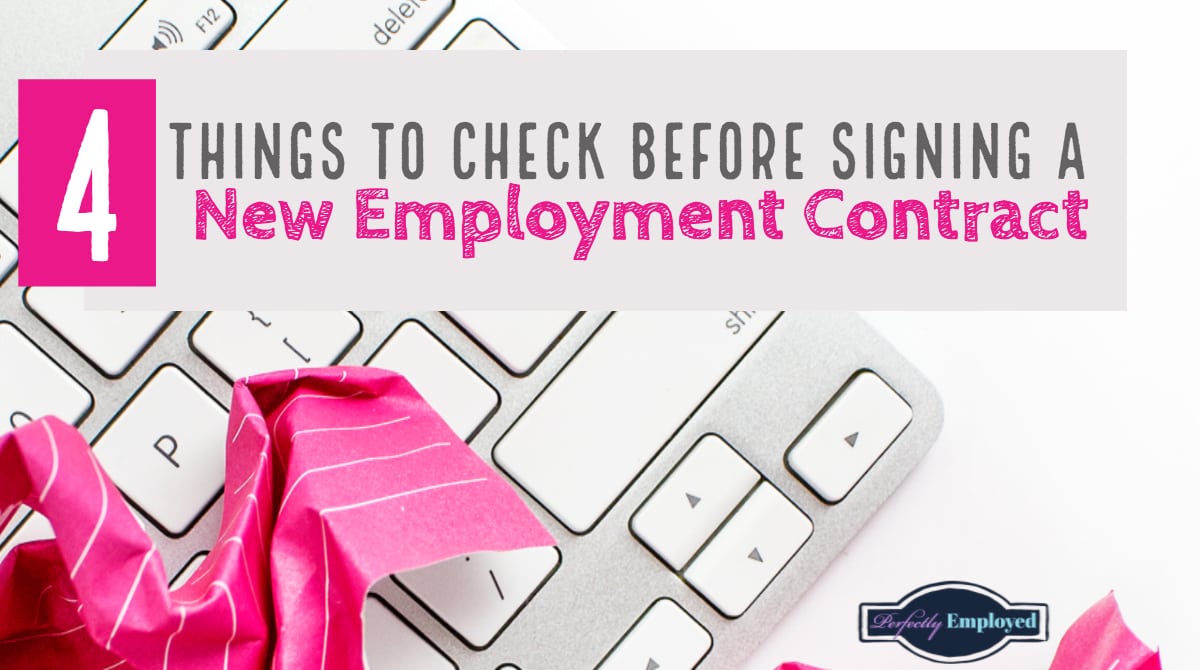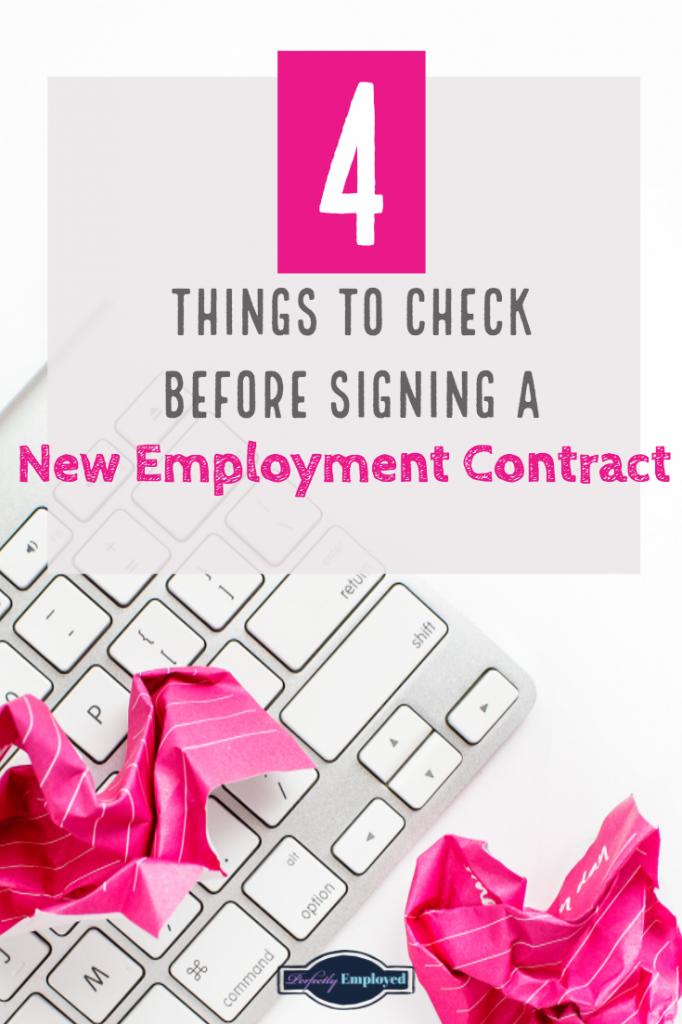
In the excitement of getting a new job, it’s easy to skip over reading your new employment contract. However, you should read the contract from top to bottom if you want to make sure your expectations align with your new employers.
Employment contracts are full of small print, and without careful review, you could sign something with a clause that limits your career options for years. Remember that everything is negotiable, and the time to negotiate is before you sign. Once your signature is on the paper, it’s hard to convince an employer to make changes.
So, to make sure you know exactly what kind of job you are getting yourself into, it is very important to rake through the contract with a fine tooth comb. Not sure what to check? Here are a few suggestions:
1. Salary And Bonuses
Even though you should have already discussed your salary with your new employer, it’s still a good idea to double check the final figure in your contract. Since the person making the job offer and the person who talked to you about salary are probably different people, you should check to ensure the contract outlines everything you were promised—including bonuses.
Look for typos, vague language, and just plain wrong numbers. If anything looks out of place, do not sign the contract. Ask for explanation, and if the contract says anything different than what you were promised, do not sign. Request a fresh copy of the contract that clearly states the salary and bonuses you expect for the job.
2. The Job Description
While you should expect a clause like “other duties as assigned” in your job description, the rest of the description should match how the hiring manager described the job to you. The duties should match what was posted in the advertisement, and if you are confused or concerned about anything listed in the duties list, don’t sign. Ask for explanation and corrections.
If your employer ever tries to get you to do anything out of scope or tries to force you to work significantly longer than your contracted hours, you might want to find out more at bravermanlawfirm.com about your rights. In this case, your employer might be in breach of the contract, and you could be within your right to take them to court.
Of course, the best way to avoid misplaced expectations on both your part and your employers is to make sure the job duties listed in your employment contract are correct.
3. The Termination Clause
Inevitably, either you or your employer will wish to part ways in the future. Now is the time to clarify termination expectations.
Thoroughly read the termination the termination clause so that you understand the reasons your employer may fire you. Also pay attention to how much notice the employer expects you to give when you resign. Be careful if you spot the phrase “sole discretion” used in this clause, as it means that your employer will be able to end your contract without giving you any warning.
4. Restrictive Clauses
Some employment contracts come with clauses that could restrict you in certain ways. For instance, employees who work in some government bodies will not be able to show political allegiance to any party in any way. You might also notice clauses that say you are not permitted to poach the company’s clients if you move on to a different business. You can find out more about such restrictive clauses by reading globalworkplaceinsider.com.
Most dubious to us are clauses that restrict “moonlighting.” Companies that restrict your ability to earn money in other ways besides working for them do not have your best interests in mind and will not make good employers. This kind of clause shows you that more tyrannical policies are in your future, and who needs that kind of stress?
Save to Pinterest





